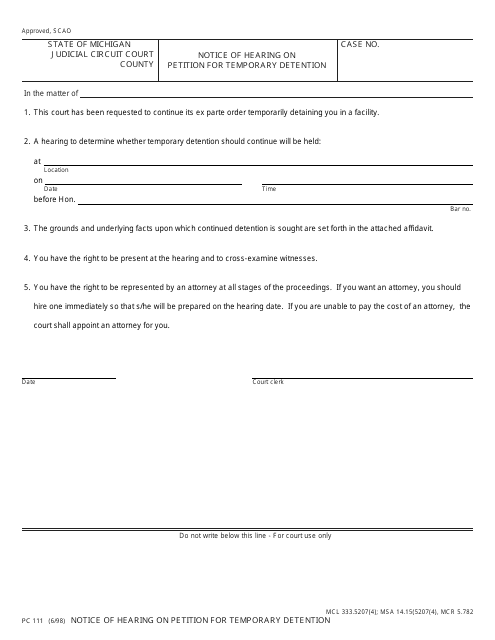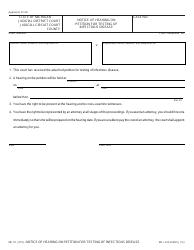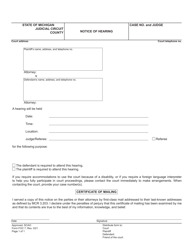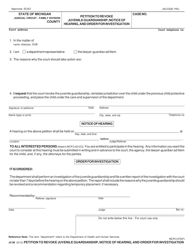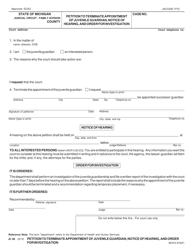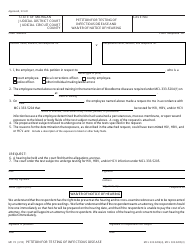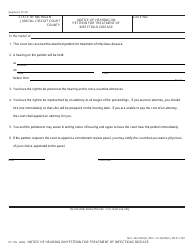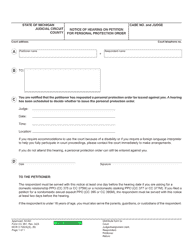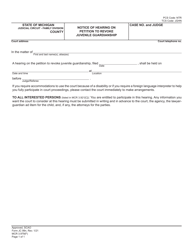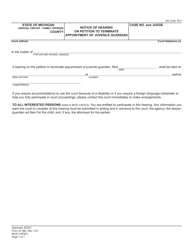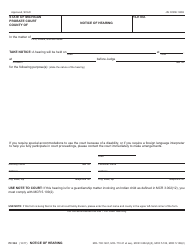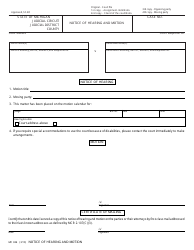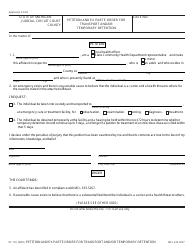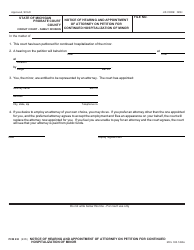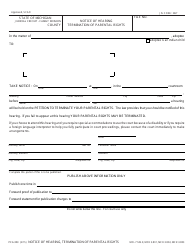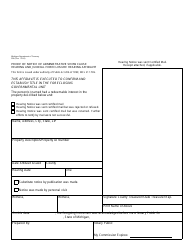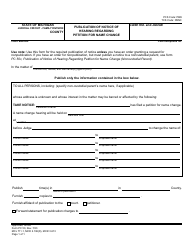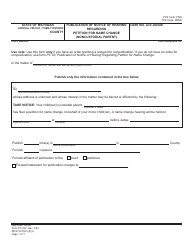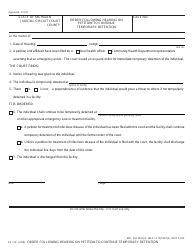Form PC111 Notice of Hearing on Petition for Temporary Detention - Michigan
What Is Form PC111?
This is a legal form that was released by the Michigan Circuit Court - a government authority operating within Michigan. As of today, no separate filing guidelines for the form are provided by the issuing department.
FAQ
Q: What is a PC111 Notice of Hearing on Petition for Temporary Detention?
A: A PC111 Notice of Hearing on Petition for Temporary Detention is a document that notifies an individual of a scheduled hearing related to their potential temporary detention.
Q: Who is the document for?
A: The document is for the individual who is the subject of the petition for temporary detention.
Q: What is the purpose of the hearing?
A: The purpose of the hearing is to determine whether temporary detention is necessary for the individual's safety or the safety of others.
Q: Who initiates the petition for temporary detention?
A: The petition for temporary detention is typically initiated by a mental health professional, law enforcement officer, or concerned individual.
Q: What happens during the hearing?
A: During the hearing, evidence will be presented and arguments will be made to support or oppose the need for temporary detention. The judge will then make a decision based on the presented information.
Q: What are the possible outcomes of the hearing?
A: The possible outcomes of the hearing include granting temporary detention, denying temporary detention, or ordering an alternative action or treatment plan.
Q: What should the individual do if they receive a PC111 Notice of Hearing?
A: The individual should consult with an attorney and prepare to attend the hearing. It is important to understand their rights and have appropriate legal representation.
Q: Are there any potential consequences of temporary detention?
A: Yes, temporary detention can result in a person being held involuntarily in a mental health facility for a specified period of time, depending on the judge's decision.
Q: Can the individual challenge the petition for temporary detention?
A: Yes, the individual has the right to challenge the petition and present evidence or arguments against their temporary detention.
Q: What should the individual do if they disagree with the judge's decision?
A: If the individual disagrees with the judge's decision, they can consult with an attorney and explore potential options for appeal or further legal action.
Form Details:
- Released on June 1, 1998;
- The latest edition provided by the Michigan Circuit Court;
- Easy to use and ready to print;
- Quick to customize;
- Compatible with most PDF-viewing applications;
- Fill out the form in our online filing application.
Download a fillable version of Form PC111 by clicking the link below or browse more documents and templates provided by the Michigan Circuit Court.
